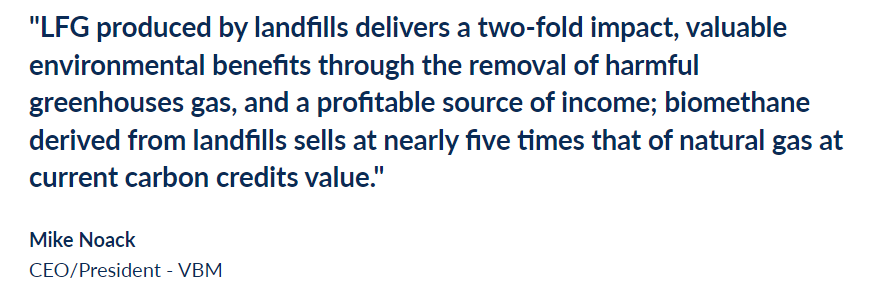Landfill gas (LFG) is generated during the decomposition of organic waste in landfills. It is composed of roughly 50% methane and 50% CO2, with trace amounts of other compounds. Given that all landfills generate methane and methane is a very potent greenhouse gas – with a far higher warming potential compared to CO2 – reducing methane emissions is a key pathway to mitigating climate change.
Benefits of LFG in brief:
- Renewable energy source – Landfill gas can be captured and utilized as a source of renewable energy. Methane can be harnessed for generating electricity, heating or as a fuel for vehicles
- Reduction of greenhouse gas emissions – It is estimated that an LFG project will capture roughly 60-90% of harmful methane emitting from the landfill
- Waste management – Capturing the methane not only removes harmful emissions, but minimizes odor typically associated with municipal solid waste
- Economic benefits – Landfill gas projects create economic opportunities such as job creation in the construction and operation of gas collection systems and natural gas cleaning and processing plants, as well as royalty payments made to landfill owners and operators based upon revenue generation from the sale of electricity, heat, or fuel produced from landfill gas
- Diversification of energy sources – Utilizing methane as an energy source diversifies the energy mix, reducing the world’s dependence on fossil fuels and promoting a more sustainable energy infrastructure.
Contact us to find out how we can help you realize the benefits of LFG in your municipality.


